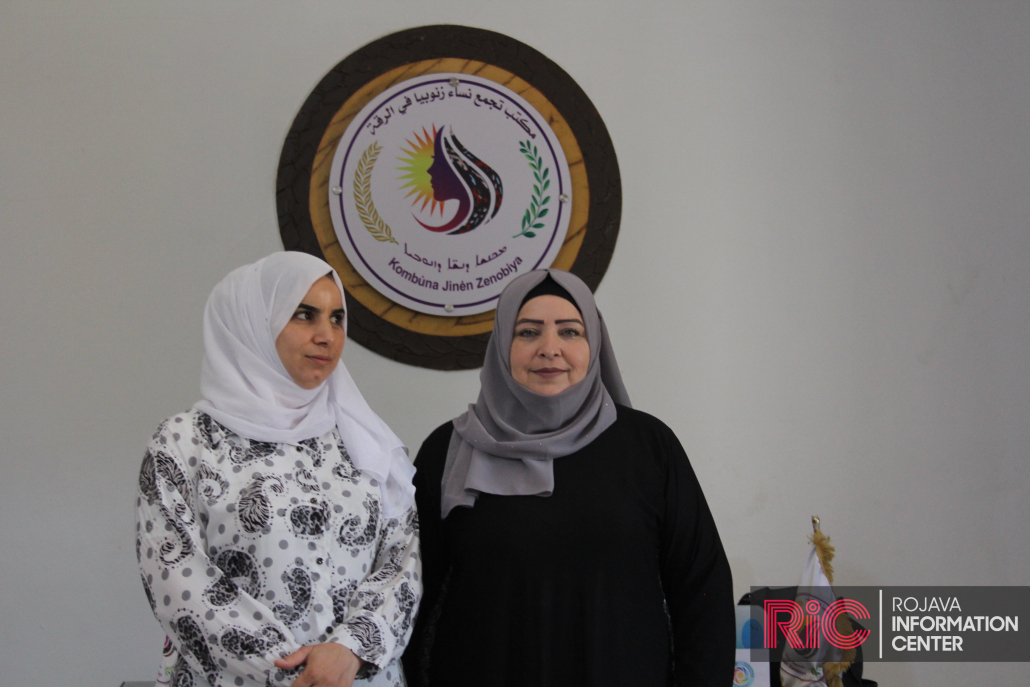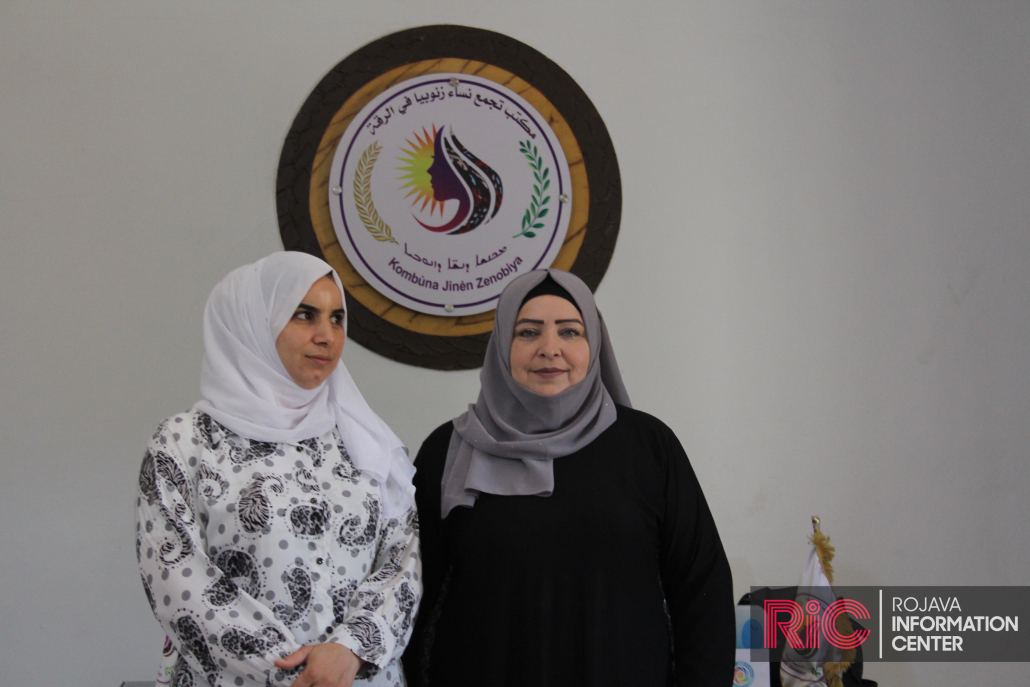
L to R: Buthina Abod and Miyada al-Ahmed [July 2024]
“We’re here to be a real source of support for women, helping them understand their role in the workplace and within their families.”
RIC spoke to Zenobia Women’s Gathering, the main organization advocating for women’s rights in the Arab-majority regions of North and East Syria. Miyada al-Ahmed, the coordinator of Zenobia Women’s Gathering, and Buthina Abod, its spokesperson, outlined the organization’s development, the challenges they have been facing as well as their current work in the Raqqa region.
Miyada al-Ahmed states the mission of Zenobia: “We’re here to be a real source of support for women, helping them understand their role in the workplace and within their families.” She explains that even before the brutal violence and repression of ISIS, women lacked basic rights in the region. She notes that traditions which consider women’s role to be serving the family and producing children still hold women back: “We are working on changing the mentality. We must challenge those traditions that are creating suffering for us.”
She explains how women’s lives have improved since Raqqa’s liberation from ISIS in 2017: “Women have been successful in all fields of work, including politics. Zenobia trains, educates and empowers women to work. Additionally, several economic projects have been created to provide job opportunities for women, such as picking olives and growing wheat. The goal is for women to be able to rely on themselves and be financially independent.”
Zenobia was officially founded in June 2021. Buthina Abod tells of the obstacles faced by Zenobia in its initial years: “We had to overcome extraordinary challenges to achieve our goals. We had to start from scratch, since all buildings and infrastructure were destroyed. Raqqa was like a ghost city. In the beginning, we worked in houses. Eventually, we established a women’s administration for our organisation.” Since then, the organization has grown and established offices in the Raqqa, Tabqa, Manbij and Deir ez-Zor regions. It is divided into different committees, working on topics such as archive and media, education and awareness, training, finance, relations and health.
Buthina Abod points out that the core of Zenobia’s work is furthering women’s rights in the region by empowering women: “The ideology of ISIS has influenced women’s mindsets. For example, women were led to accept underage marriage and polygamy. As a women’s organization, our responsibility is to change their mentality and show them that these practices are harmful. To this end, we have conducted awareness campaigns. We share information about marriage and divorce, how to raise children and how to foster a safe and healthy community.” The awareness campaigns have led to a boost in the numbers of women participating in the work of Zenobia: “Our numbers are growing steadily. Regularly, new people join us and become familiar with what we stand for.”
Combating violence against women and all kinds of abuse is another essential part of the work of Zenobia.For instance, they took on the case of honor-based violence in Tel Samen IDP camp (in the Raqqa region), a video of which went viral in February 2024. At least two sisters were accused of having extra-marital relations and were heavily beaten by their uncle and cousins. Buthina Abod states that: “Zenobia filed a complaint against the perpetrators of the attack, and they are now in prison. We also helped, treated and protected the women victims in a women’s house.”
Miyada al-Ahmed recounts the development of women’s houses since their beginning, and how the attitude of society towards them has changed: “In the beginning, we faced difficulties in how we were perceived. It was needed that women come to us to report problems so that we can help them. Many husbands did not want us to come into their homes to resolve issues. Men were under the impression that we were a court and that we were coming to hold them responsible.
“However, this has changed. Now, even men come to ask us for help when they are facing marital problems, like families interfering in their relationships. We explain that it is wrong to divide a family when both parties do not want that. When families are torn apart by internal conflict, it has a knock-on effect on society as a whole.”

